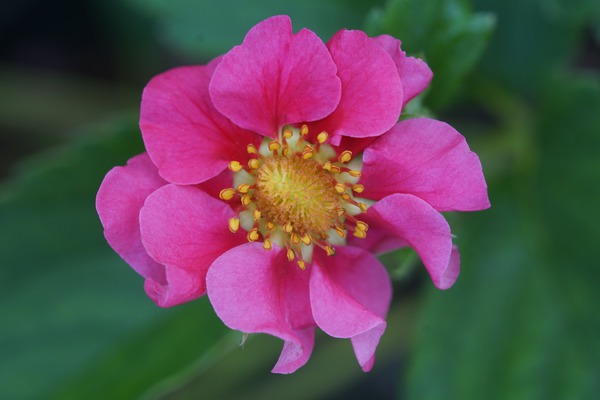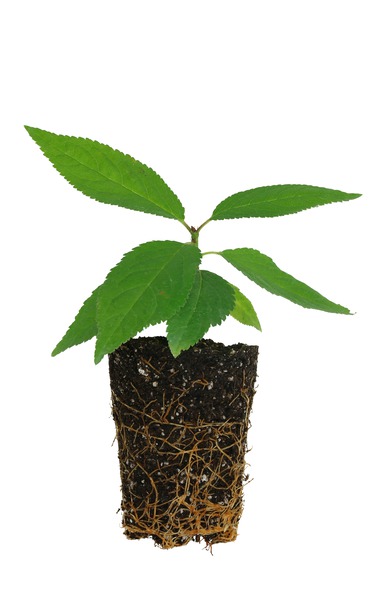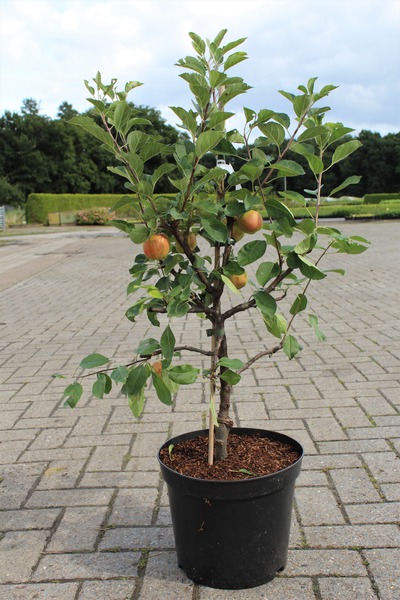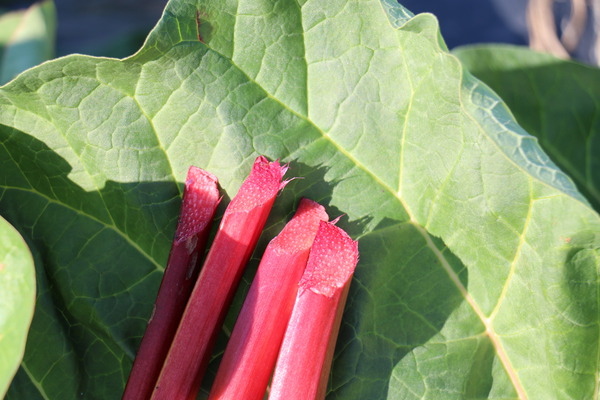 As the new company name, Lubera Edibles®, already suggests, we are expanding our range of young plants from classic soft fruits, such as raspberries, blackberries or blueberries, to anything that can be consumed in any way. This includes edible fruits like kiwis, apples and pears. Or edible roots such as horseradish, Jerusalem artichoke or potato. But also edible leaves, petioles, flowers such as sea kale, tea or rhubarb. We would like to introduce our most important groups of crops in the following article.
As the new company name, Lubera Edibles®, already suggests, we are expanding our range of young plants from classic soft fruits, such as raspberries, blackberries or blueberries, to anything that can be consumed in any way. This includes edible fruits like kiwis, apples and pears. Or edible roots such as horseradish, Jerusalem artichoke or potato. But also edible leaves, petioles, flowers such as sea kale, tea or rhubarb. We would like to introduce our most important groups of crops in the following article.
Soft fruit is our heart and soul
We started with soft fruit and it has helped us to get where we are today: we are the leading supplier of soft fruit plants for the European home garden market. Soft fruit is still our most important crop. In terms of quantity, raspberries, blackberries and blueberries account for the largest share in this sector. However, we have been able to significantly expand and extend our product range in recent years. Thus, in addition to the above-mentioned genera, we can also offer more classic soft fruits such as gooseberries and currants. In these genera, we rely primarily on the innovative breeding of our sister company Lubera®. Many additional berries and types of wild fruit are either still in the trial stage or the propagation is already established.
Starting in spring 2019, we will be able to supply an entire range of completely new and up-to-date strawberry young plants. The extensive product assortment consists of very fruity (Frutium series) or very aromatic varieties (Parfum series), including long-lasting varieties for the garden or for terraces or balconies. In addition, we also have a range of climbing and hanging strawberries in our assortment. Our sister company Lubera® is launching the first pink-flowering ornamental strawberries with gourmet fruits: the Double Pleasure strawberries will be available starting in 2020.

Picture: beautiful flower of the Double Pleasures® strawberry
In addition, we are also able to offer a wide range of niche products such as the goji berry (Lycium) or mulberry (Morus). In addition, there is also an interesting wild fruit assortment, which we are constantly expanding. Currently, there are various varieties of chokeberry (Aronia), sea buckthorn (Hippophae), red or green-leaved elderberries (Sambucus) and blue honeyberries (Lonicera caerulea) available. Then there are almost forgotten rarities like the damson plum (Prunus sp.)

Picture: young plant of Prunus domestica ssp insititia
In addition, we also have young plants from more exotic plant groups in our range. These include, among others, winter hardy figs (Ficus carica) as well as kiwis, both small-fruited (Act. Arguta) and large-fruited varieties (Act. Deliciosa).
Also in the future, soft fruit will play a significant role in our assortment. Every year, our sister company Lubera® invests a lot of time and effort into the breeding and selection of new varieties so that we can always offer our customers a sustainable and innovative product range. At the same time, we are working on a propagation process of frost-resistant citrus species and persimmons. In addition, in the coming years, we will expand or reorganise our product range for some genera (Hippophae, Morus, Lonicera sp., Amelanchier).
Fruit tree young plants – now available
In addition to the young plants from classic soft fruit, we will also be able to offer fruit tree young plants starting for the first time in spring 2019. Our assortment contains only pome fruit at the beginning. All varieties offered by us come from the innovative breeding lines of our sister company Lubera®. These varieties have been specially bred and selected for the demands in the home garden. They are characterised by their very good flavour, superior health and partly by their very compact or slim growth.
For apples, we can offer varieties from the following groups:
Maloni® miniature apple trees: these varieties are characterised by their bushy growth, which does not require pruning because the varieties never exceed 130 cm. In addition, all of the varieties are resistant to scab.

Malini® columnar apple trees: since columnar trees should not grow into the sky, we also offer varieties with different growth heights. On the one hand, there are the human-sized varieties, which reach a height of up to 200 cm after seven years. On the other hand, there are the hedge-sized varieties, which after seven years reach a height of up to 300 cm without pruning measures.
Paradis® classic apple trees: the apple varieties of this group are the 'normal' apple trees that can be grown as a bush or spindle, since all Paradis® varieties are grafted onto the low growing M9 rootstock. The product range includes early to late varieties, apples that can be stored well or ones that can be enjoyed directly off the tree once they are ripe. The spectrum of colour ranges from golden yellow to red-yellow flamed to red.
Redlove® red-fleshed apples: like the Paradis® trees, the Redlove® varieties also develop into classic apple trees. The advantages of these apple varieties are the intense pink flowers, the extraordinary autumn colour and of course the pinkish red flesh. Just as the maturity of each variety varies, so does the flavour, from sweet to sour.
There are also varieties of pears available from the following groups:
Pironi® miniature pear trees: these are genetically compact pear varieties. They form a bushy, branched, round-shaped crown and after 25 years they reach a height of about 150 - 170 cm without pruning measures.
Pirini® columnar pear: this is also a genetically compact pear. However, since the growth is more apical dominating, this variety forms slender, upright trees and can thus be described as a true columnar pear.
The vegetables – there’s lots to eat
As mentioned at the beginning, we want to deal with all edible plants in the future, including vegetables. The first vegetable that we have been offering for a few years, but is usually not perceived as such, is rhubarb. In the meantime, we have a broad range of early, red-stemmed and red-fleshed varieties and a dwarf, compact variety. Additional varieties, including day-neutral red and green varieties, are in preparation and are about to be launched onto the market.

Picture: red fleshed rhubarb 'Canada Red'
Furthermore, the exotic-looking melon pear or Pepino is already in the range and available. This also includes our first artichoke variety, and brand new starting in 2019, horseradish will also be available.
Other crops such as tubers (sweet potato, potato or Jerusalem artichoke) but also fruit vegetables (tomatoes, aubergines) are in preparation or we are currently in the selection process.
Click here for more information
Would you like more information, an individual consultation or information about additional ranges?
Click here for the complete 2019 catalogue, which can be downloaded.
If you have specific questions, please do not hesitate to contact our customer service, where you can also spontaneously place an order.
And of course we are always there for you via telephone.
If you want to be regularly informed about news, etc., you can also subscribe to our gardener newsletter here, which we send out about once a month - it's worth it!
